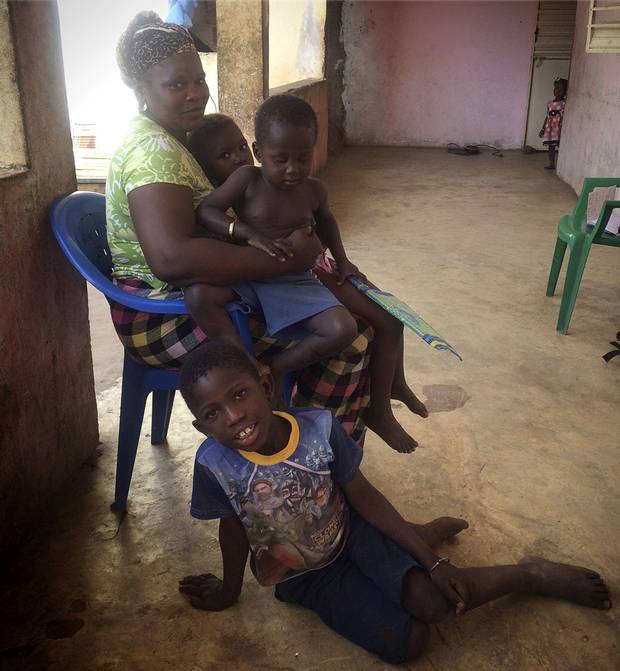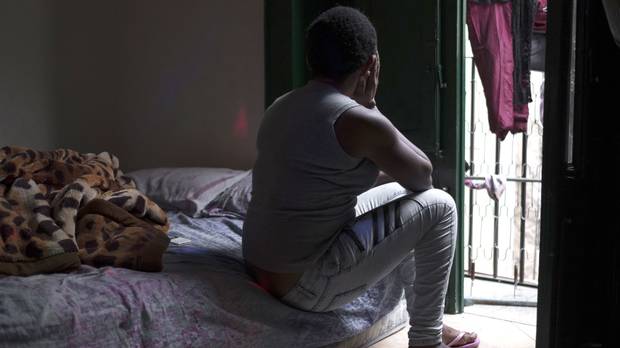Walking along the dirt track in the centre of Maka village in Tambacounda province in eastern Senegal, one need not ask which house belongs to the family with a son in Europe. Amid a cluster of square mud-brick houses with thatched roofs, only one is made of cement, towering above the flat scrubland; a spacious veranda wraps around the front. Yessa Camara, who lives inside, was married at 15. Today, she is 30. For the entirety of her marriage, her husband has lived in Spain, sending money home to pay for the house and the family's children's education.
Ms. Camara looks after her only daughter and six nieces and nephews. All of them call her husband father. As the son who made it to Europe – one of his brothers died on the journey, another found work in neighbouring Guinea – it falls to him to pay their school fees and to his wife to take care of them while their parents are elsewhere seeking work. On this day, four of them take turns climbing into Ms. Camara's lap, hiding their faces behind fistfuls of her skirt. "The children miss their father," she says, "but it's better for them that he's there."
For now, there are too many young children at home for her to think of joining him. "Of course, I'd like to go," she says, "It's always better to be close to your husband. It's hard to be alone." When they talk on the phone, it's mostly about the children. He sends money every month, but Ms. Camara says she has never really known how he earns it. "I don't exactly know what he does," she says with a shrug, "but he has contracts with white people."
Behind the images of hundreds of young men piled onto Zodiacs in the Mediterranean or working odd jobs selling sunglasses and CDs on the streets of Europe, are the wives, children and parents who depend on them at home. Many men head for Europe hoping to be able to support as many as 20 or 30 relatives.
But it is often the women and their families who make the men's journeys possible by funding their trips, helping them find jobs and housing when they arrive, and taking on the added burdens they leave behind. More than 60,500 migrants have made the Mediterranean crossing so far in 2017. Over 1,500 have perished. As the death toll rises, many women are beginning to question their roles in helping their children leave, and to counsel them against the journey. Yet with virtually no job prospects and families to feed, it's a tough sell.
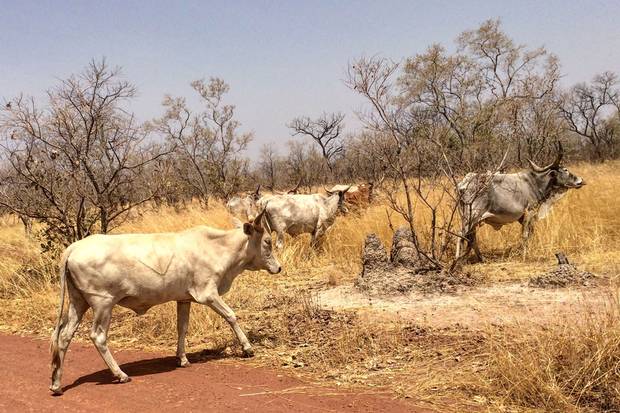
In eastern Senegal’s Tambacounda province, many young men sell their own or their family’s livestock to pay for the journey to Europe.
LAURA DEAN FOR THE GLOBE AND MAIL

African migrants, mostly from Sudan and Senegal, wait on an out-of-control rubber boat to be assisted by an NGO-run rescue ship north of Sabratha, off the Libyan coast, on Feb. 23, 2017.
SANTI PALACIOS/ASSOCIATED PRESS
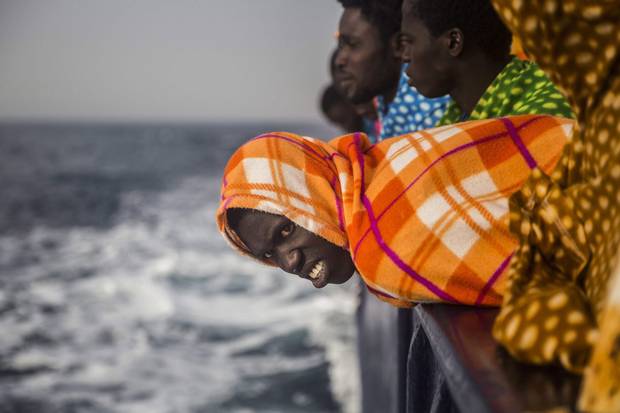
So far this year, more than 60,500 migrants have made the Mediterranean crossing from Africa to Europe – and more than 1,500 have died in the attempt.
SANTI PALACIOS/ASSOCIATED PRESS
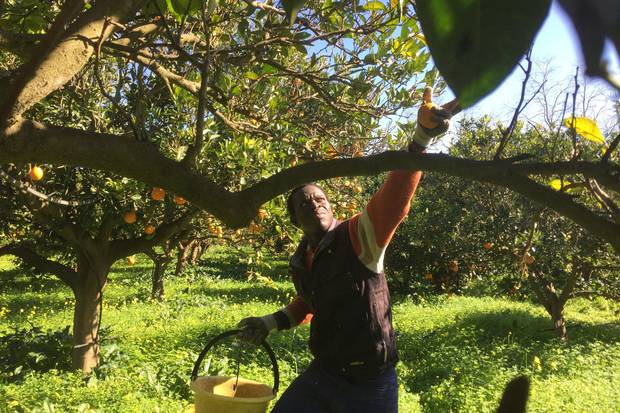
Pape Badji from Dakar, Senegal, picks oranges in a field in Rosarno, Italy, owned by a co-operative created by Calabrian farmers to help migrants avoid being exploited. Thousands of mostly African migrants who work in Calabria during the fruit-picking season live on meager wages and in squalid conditions.
ANNALISA CAMILLI/ASSOCIATED PRESS
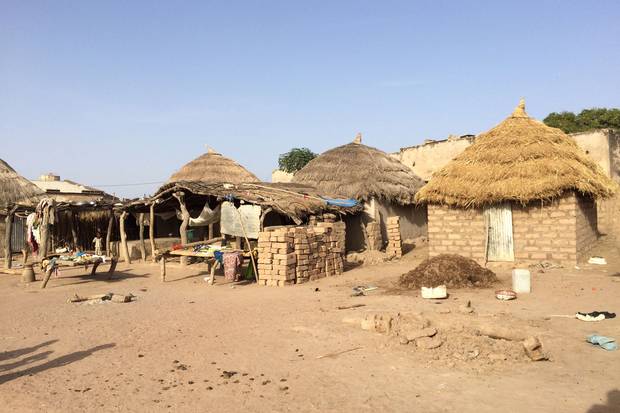
Back in Tambacounda province, most families live in mud brick houses like the ones shown at left. But families with relatives in Europe can afford modern cement houses.
LAURA DEAN FOR THE GLOBE AND MAIL
Senegal is consistently among the top-10 countries of origin of migrants arriving in Italy, despite the fact that, economically, it is faring relatively better than many other countries with large numbers of migrants. But numbers can be misleading and high levels of rural poverty persist. In addition, during the colonial period, many Senegalese were legally French citizens, which has created a long tradition of movement to Europe.
The Senegalese government, in conjunction with the European Union and civil society, is working on a comprehensive plan to try to address the root causes of migration, but it is still in its early stages.
"A successful son is everyone's son, a failed son is his mother's," goes a Senegalese proverb. A son who returns from Europe with enough money to build a house and support relatives brings his family prestige, not to mention a chance at survival. Many women across Senegal have supported, if reluctantly, the crossings of their male relatives.
With little access to conventional financial markets, women sometimes use the money they make in "tontines" – informal credit unions where about 10 women contribute a sum each month – and take turns claiming the full amount, to help their sons and husbands leave. Others sell jewellery and other valuables.
This support doesn't stop when the son leaves. Family members, particularly women, will contact relatives and friends in Europe, seeking housing or jobs for their sons. "I have helped many Senegalese get settled and it was always a sister or a mother who sent them," says Dr. Oumoul Coulibaly, a Senegalese researcher on gender and migration who often assisted newly arrived migrants when she lived in Toulouse, France. She now lives in Dakar.
But while many said that they knew of women who had financed their son's or husband's journey to Europe, few admitted to doing it themselves. Many are ashamed to facilitate so dangerous a crossing, and are ambivalent about their decision.
Some help because they fear their sons might try to get the money another way. Mustapha Sarr, 52, from Ndangane, Senegal, and his wife sold their shop so his son could go. "I couldn't say no because I was afraid he would go without telling me, or get into drugs to get the money."
In a society where men often marry up to four wives, more honour and prestige frequently go to the wife whose son makes it to Europe, exacerbating the pressure on young men to leave.
"Polygamy creates competition between wives over the success of their children," Dr. Coulibaly says. "If the child of one wife goes, the others would like their children to go, too."
Women are caught between two powerful feelings of shame: that of being poor and unable to provide for their families, as well as being the less-favoured wife and that of helping her son finance a trip that may end in death.
In many communities, migration remains a potent status symbol.
"The poor young men in Louga [in northern Senegal] walk around with their passports sticking out of their front pockets to show girls, and more importantly, girls' families, that they are 'potential migrants,'" and therefore viable marriage prospects, says Dr. Aly Tandian, a professor at Gaston Berger University in Saint Louis, Senegal.
Other women, some whose sons were lost at sea, have begun to speak out about the dangers of the crossing.
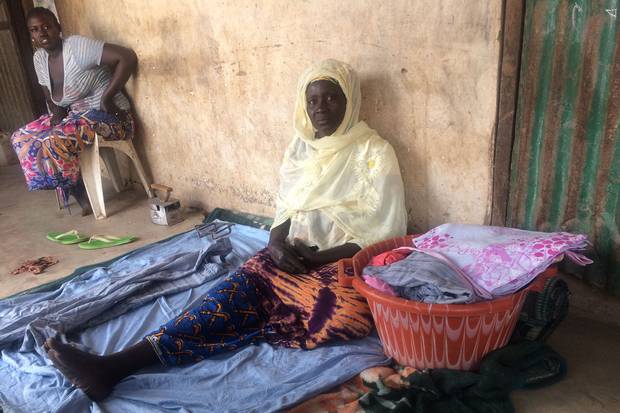
Fanta Niang, 60, lost her 20-year-old son Sendou Kane in Libya last year. After his father’s death, he left his village to try to make it to Europe. One day last year the family received a call from a relative saying that Sendou had been in a boat that sank off the Libyan coast.
LAURA DEAN FOR THE GLOBE AND MAIL
Yayou Bayam Diouf, 58, began fighting against irregular migration in 2006, when young men in her community, Thiaroye-sur-mer, a fishing village now enveloped by Dakar, began taking their boats toward the Canary Islands.
"Our families, our children, our husbands were disappearing," she says, including, one day, her only son. The day he left, he called her. "I told him he was risking his life. He said the decision was already made. He asked me to pray for him."
For a month there was no news. Then a cousin called to say that there had been a storm. All that was ever recovered of her son's boat were a few shards of wood and scraps of cloth. Eighty-eight young men died that day.
"A week later something clicked," she says, "something told me to get up, to build something to fight this crisis." She founded the Collectif des Femmes pour la Lutte Contre l'Immigration Clandestine (the Women's Collective for the Fight Against Irregular Immigration). They visited families who had lost people and those with sons thinking of leaving, raising awareness about the dangers of the journey. They secured funding to create jobs in their communities so that young men wouldn't leave. "You have to invest in dignified work so that they stay."
Among mothers she knows, Ms. Diouf has noticed a shift. "Even if [women] used to finance [the journey] more, now we do awareness raising because we saw the dangers. We have lost so much." She says while women often help finance the trip, the decision ultimately lies with men: "We are patriarchal communities. The man is the head of the household, so it's ultimately the man who has to authorize them to leave."
News of young men's deaths sends shock waves through communities across West Africa on a weekly basis.
On the day we arrived in Tabanding, the village had just received word that one of its sons, Boukar Faye, was killed in Libya. He was 26. His family was told that he had been shot on the shore as his boat set off toward Europe. No one could say by whom or why. His wife of two months, now a 25-year-old widow, will remain in seclusion for four months, according to local custom. She will be expected to marry again, but villagers say it will be difficult to find a husband, as people will say she brings bad luck. But for today, the women of the village are gathered outside her house, mourning and offering support.
Even once in Europe, success is far from given. Saliou Sy left in 2012. One of the "lucky ones," he arrived in Italy. But his family says he hasn't yet been able to find work and that they feel judged by some in the village because their son can't yet support them.
When relatives in Europe have no income, families struggle at home, particularly since they often spent so much to help them leave. "It's harder since he left, to get money to eat and buy clothes," says Fode Li, 46, whose husband left four years ago. "He still doesn't know if he will find work."
Nevertheless, the family remains hopeful. "I supported his decision to go," says Ms. Li, "but he doesn't really send money."
"I would still encourage youth to go," says his father, "There is nothing for them here."
Laura Dean reported on a fellowship from the International Reporting Project (IRP)
THE GLOBE IN AFRICA: MORE READING
